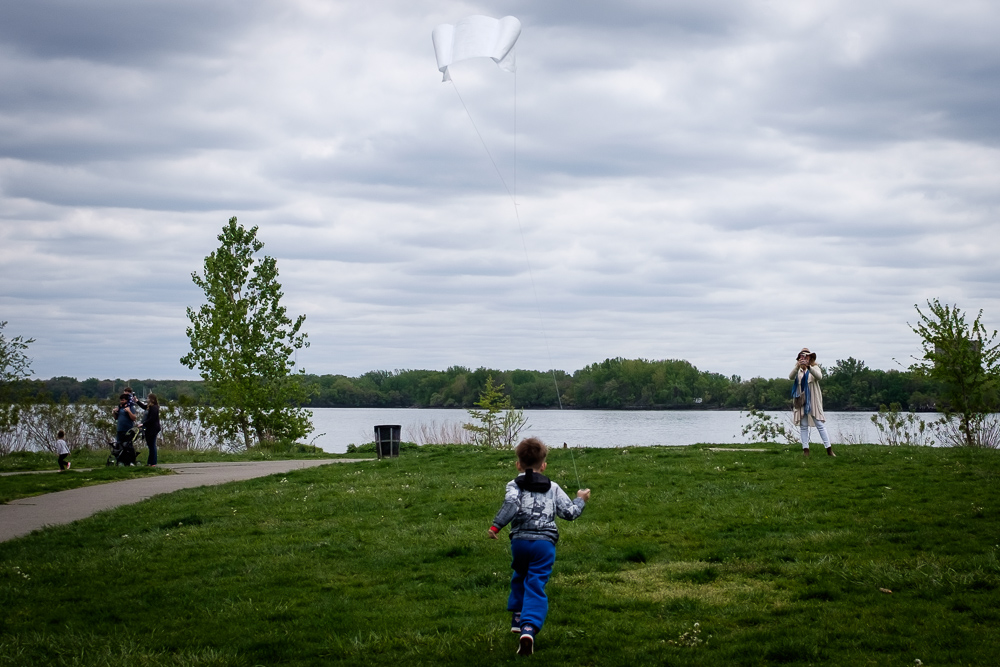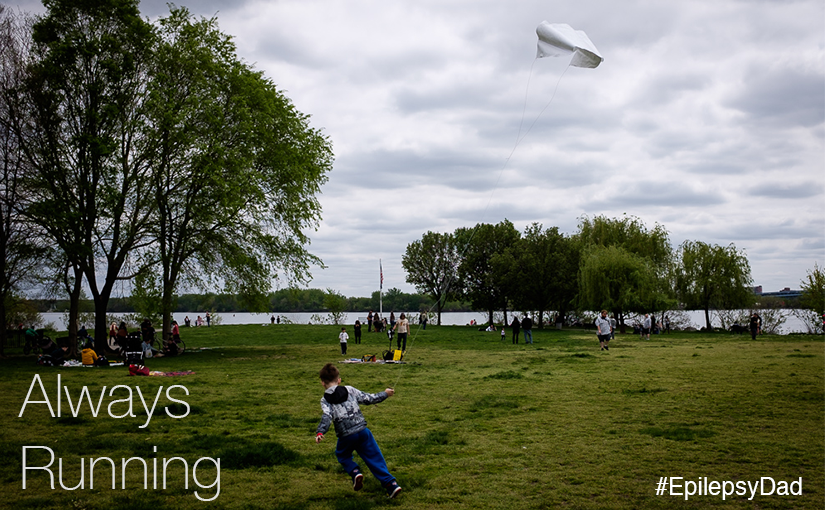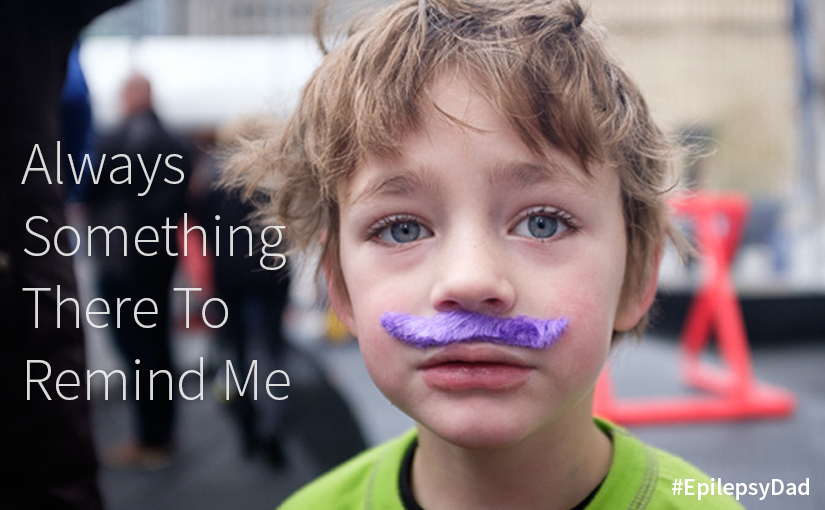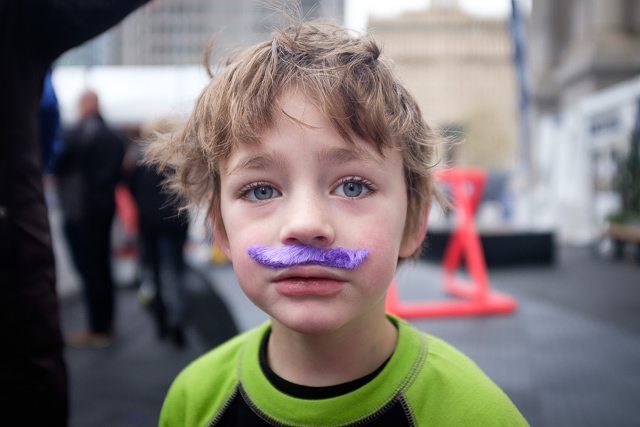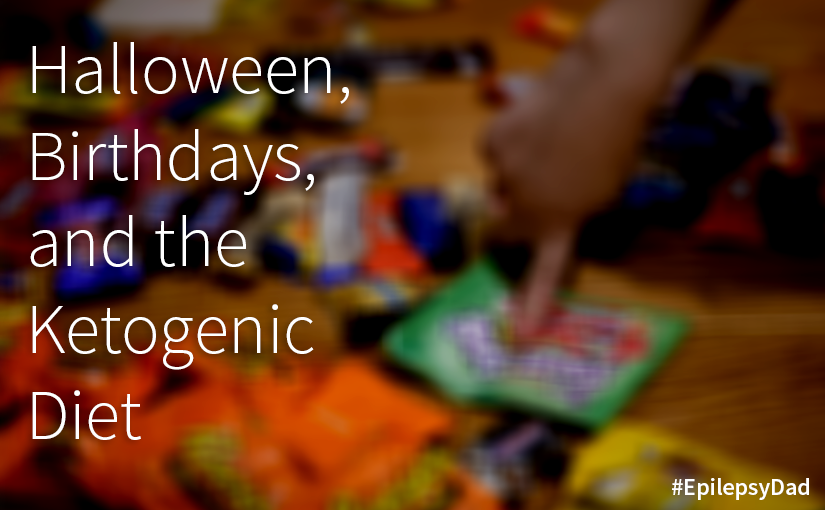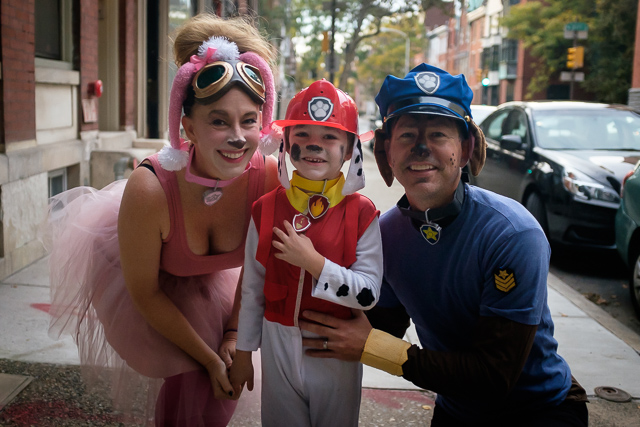Our new home city has a notable kite-flying history, and last weekend we went to the Philadelphia Kite Festival. Separated by only a few miles (and two hundred and fifty years) from where the festival was held, Benjamin Franklin performed his famous electricity experiment, as the story goes, with a kite, string, and a key.
Inspired by historical events, we forewent the store-bought kites and headed to the tent where visitors could decorate a simple paper kite. My son sat at one of the long, wooden tables, in front of a blank kite. A volunteer slid over, placing weights on the corners of the kite and handed my son a white, plastic basket of markers.
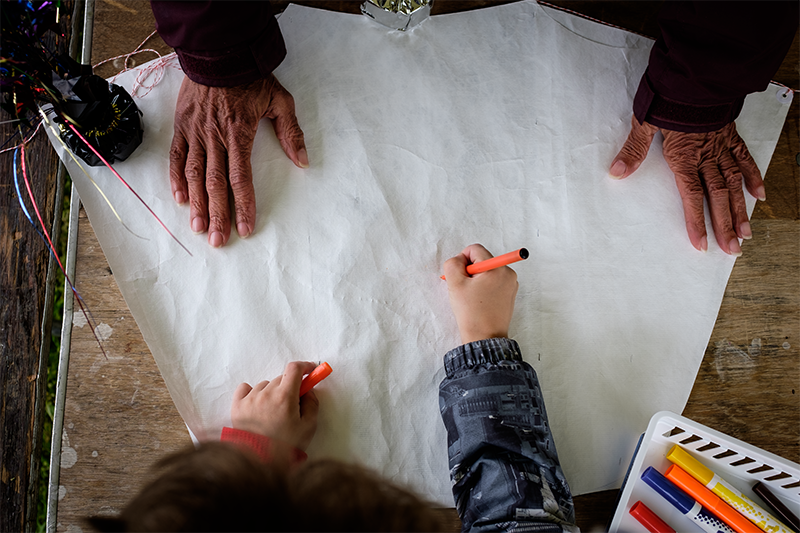
Sticking with his go-to move, my son wrote his name in the center of the kite. Then he rotated through the markers and adorned his kite with lines and shapes and squiggles in every color. Only on one side, though. The volunteer explained that the side my son was decorating was the side that he would see when his kite was in the air. When she offered to flip the kite over so that he could draw on the other side, he told her that he was done.
The volunteer took his kite and put on the finishing touches: a few folds and tape to create airfoils and string from wing to wing. As she did, she leaned over the table and gave my son a lesson in flying a kite. “Keep the wind at your back,” she said, brushing his hair from back to front with her weathered hands. “Otherwise, it will fall to the ground.” He stood, listening intently, as if he were a pilot about to take the controls of an airplane for the first time.

After a few more pointers, my son grabbed his kite and headed to the field. He placed his kite gently on the ground and unrolled a few feet of string. It was not a particularly windy day and most of the kites on the field sat limp on the ground. The breeze was barely enough to move the blades of grass and cause an occasionally flutter of the paper that comprised our hand-crafted kite.
“Go!” I told him. He held on to his roll of string and started to run. After a few feet, his kite lifted in to the air. He would turn to look at his kite high in the air but, as he did, it would start to sink slowly towards the earth below, so he would turn again and race across the field and his kite would climb back in to the sky.
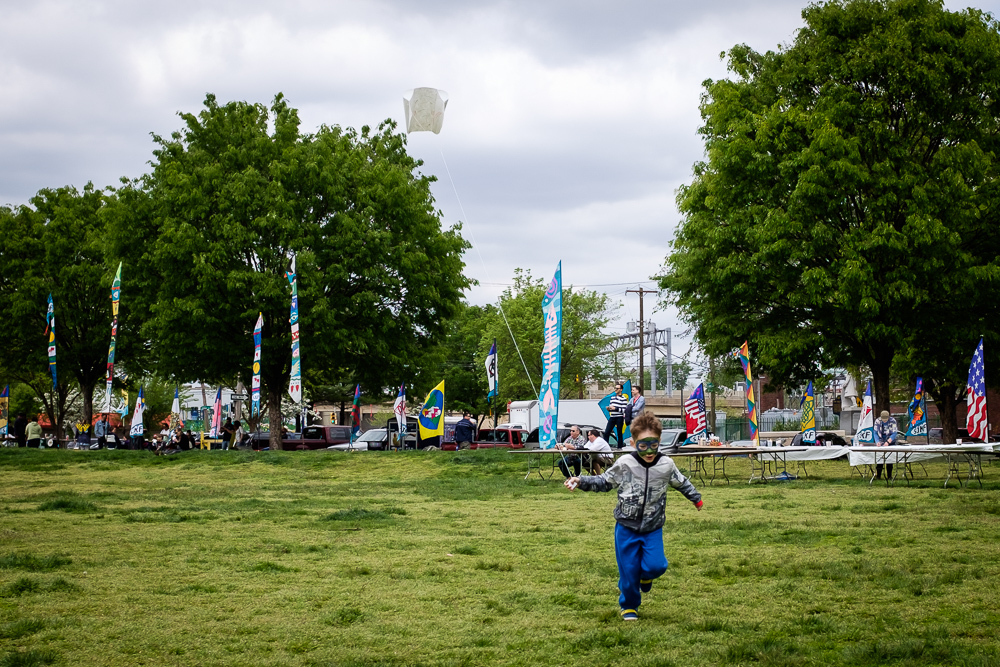
My son and I took turns over the next half hour running across the field keeping his kite in the air before I called for a break. He stopped running, and his kite fell to the ground.
We sat on a bench near the river, watching other people fly their kites, and I thought about how we have to keep running to keep everything up in the air. We are constantly running, adjusting and managing medicine, measuring everything he eats for his diet and cooking meals, making sure he’s not too tired, hunting for other triggers, and always observant, watching for seizures. We’re running and trying to normalize his day for school, and racing between appointments, and trying to give him as normal a life as possible. If we ever stop running, everything, like his kite, will come crashing back to earth.
I wish so much for him to feel the wind at his back…to watch his kite fly in the air without the need to run so that he can lay back in the grass, watching his kite in the air, and simply enjoy the sun. My son didn’t complain because there was no wind or because he had to run across the field to keep his kite in the air. He doesn’t often complain about his seizures, or his medicine, or his diet. Through everything, my son has been a trooper.
He runs because he doesn’t know or remember any other life.
We run because he is our son, and we would do anything for him.
